At the start of the pandemic, HBO dropped their adaptation of Emily St John Mandel’s book Station Eleven. If you didn’t watch it because the last thing you needed during covid was a lush miniseries about a global pandemic that wipes out 99% of the world’s population, you should go back and do it now. It’s an absolutely beautiful adaptation of a fantastic novel.

The story happens in multiple timelines, but in the post-apocalyptic world, it centres on a travelling troupe of actors performing Shakespeare, moving from town to town on a seasonal calendar.
It struck me that this was a repeating theme in things I’d been devouring recently. In Silo, the main character Juliette is named after the Shakespearean character:
Lukas: Like... Like the play.
Juliette: Yeah. You heard of it?
Lukas: Yeah, of course. Well, they don't really perform that one anymore though, do they? Oh, I... I... I don't know. Some people say it was written by, well, a rebel.
This is a change from Wool, the book on which it’s based. In that version, Juliette is taken as a child to the Down Deep by her parents to see a performance of Romeus and Juliette, which we come to realise is one of the few pieces of art that has survived this unknown apocalypse.
(Interestingly, the concept art for the tv show contemplated that performance, with the star-crossed lovers being from different levels in the Silo)
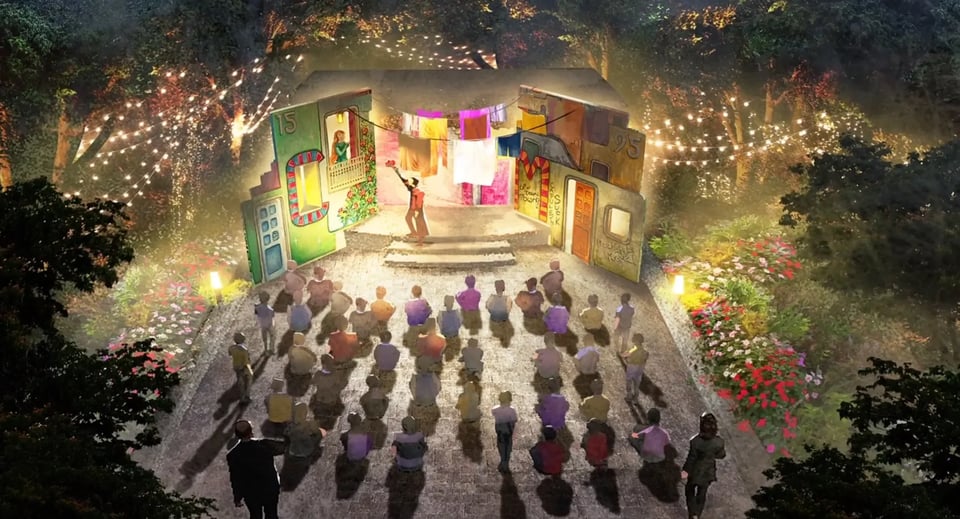
In This Is How You Lose the Time War, the stunning novel from Amar El-Mohtar and Max Gladstone about two time-travelling secret agent rivals, Romeo and Juliet is both text and subtext — but what I loved was this idea that in every strand of time the play appears, but not always the same way:
If Blue were a scholar—and she has played one enough times to know she would have loved to be—she would catalogue, across all strands, a comprehensive study of the worlds in which Romeo and Juliet is a tragedy, and in which a comedy. It delights her, whenever visiting a new strand, to take in a performance not knowing how it will end.
In Station Eleven, Mandel is exploring this theme directly — which art survives the end of the world. There’s something sort of neocolonial about the idea that it will definitely be Shakespeare — drawing on assumptions about who (and where) survivors will be, but it’s a wonderful question.
In 2019, Foundation (the International Review of Science Fiction) had a special section on Shakespeare and Science Fiction, in which academics explore the appearance of and reference to the Bard, not only in Mandel’s work but in the MCU, Westworld, Star Trek and others. I was struck by one of the articles being about Shakespeare in the video game Fallout.
I’ve never played the game, but the TV adaptation is great. (Aside: because I’d never played the game, I was surprised by the whole people-living-in-a-silo-after-an-apocalypse vibe turning up again, and had to immediately go digging to find out which preceded what. Howey says Fallout inspired the books). Anyway the game has different versions, and in the first multiplayer online version — Fallout 76 — players started doing what people always do in MMORPGs: pretty much anything.
During the pandemic, some players got together and formed a theatre troupe — the Wasteland Theatre Company — and began staging performances of, yes, Shakespeare inside the post-apocalyptic game.
the troupe aimed to revive the performing arts within the game, creating a bridge between the virtual and real-life experiences. As Harvest explained, “When we first decided to perform a full, live play within Fallout 76 we understood immediately that what we were doing fit both the lore of the Fallout universe as well as our own pandemic reality. The arts find a way to survive crisis because the arts are an expression of our humanity.”
You can watch their performance of Romeo and Juliet here.
Not everyone was a fan of course, because apparently we wouldn’t be performing plays a mere 25 years after an apocalypse, whatever Station Eleven might have to say about it:
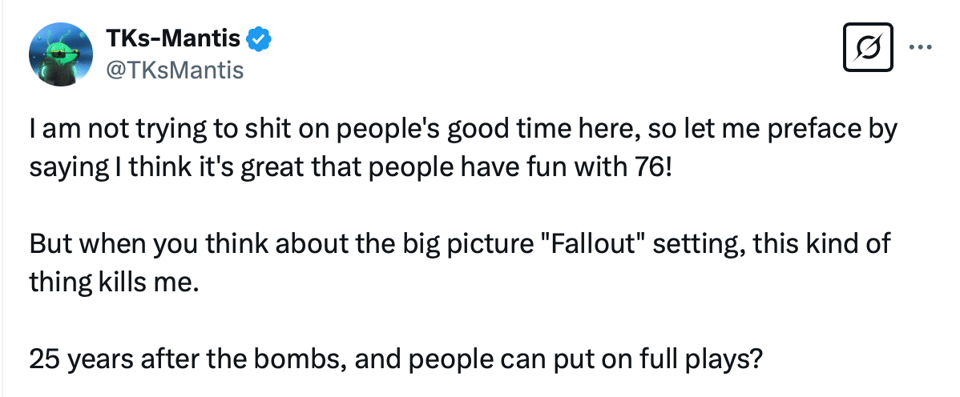
But ironically enough, what I discovered reading the Foundation article was that in Fallout 4 (set over 200 years after the bombs, so TK up there can chill out about accuracy) a character is revealed to be an actor who scratches out a career performing audio dramas on radio, and who intends to introduce the Super Mutants to Shakespeare to civilise them.
This explains the persistence of certain elements of the pre-apocalyptic civilization in every post-apocalyptic narrative. These elements – and they naturally vary from author to author – are arguably offered either as the equivalent to the stereotypical cockroach – the undesirable that even nuclear armageddon cannot kill – or as something so essential to civilization itself that it must be retained even in the cleaned slate of a new order. Fallout’s treatment of Shakespeare appears to shift between each of these possibilities – ‘unkillable’ or ‘essential.’
It doesn’t work — the Mutants find Macbeth funny, the way Helmholtz guffaws at Romeo and Juliet when John reads it to him in Brave New World.
Michelle Yost, in Losing Shakespeare, looks at a bunch of other stories in which these plays survive global catastrophes of various kinds. She even tried to find out what would really happen when our own world melts down:
I contacted the Folger Shakespeare Library and spoke with Dr. Georgianna Ziegler, the Head Reference Librarian, to ask about the Library’s contingencies to save its most precious documents. She stated that all of the First Folios and other important pieces are kept in a vault three stories underground – originally only two until after 9-11 – and that during World War II a significant portion of the Library’s rare materials were removed from Washington DC and sent for safe keeping to Amherst.
Tbh only putting them on level three of a silo doesn’t seem that safe.
All of this got me thinking about what the strangest or most remote place was that Romeo and Juliet had ever been performed. Because all search is AI slop now, I decided to stare directly into the void and ask ChatGPT. It straight up hallucinated thirty performances that have never taken place, including one on a Russian military submarine where Juliet delivers the balcony scene from a torpedo tube, and one in Wales involving live goats.

I don’t know what this means for Shakespeare surviving an AI-based apocalypse, but it probably isn’t good.
I hope the version that survives is Baz Luhrmann’s.
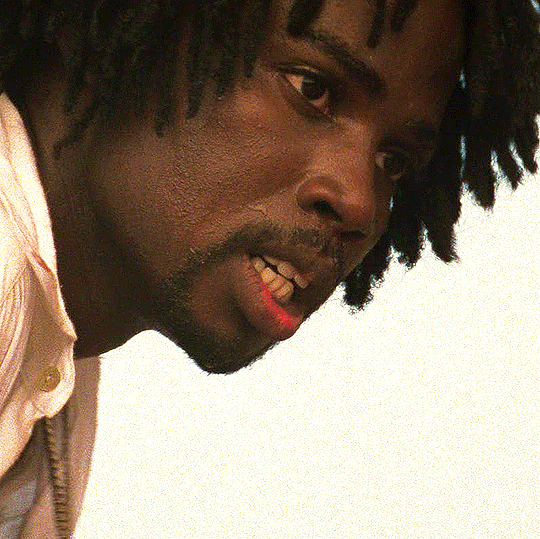
Reply to this and tell me what art you’d save to perform after the end of the world. Or forward this to someone who would.
more good stuff
my friend Erika has been painting chickens for a while now and she’s built this awesome site clickens where you choose between them. Doing this for five minutes is better for your mental health than doomscrolling.
Low←Tech Magazine is a solar-powered website, which means sometimes it goes offline. This is awesome.
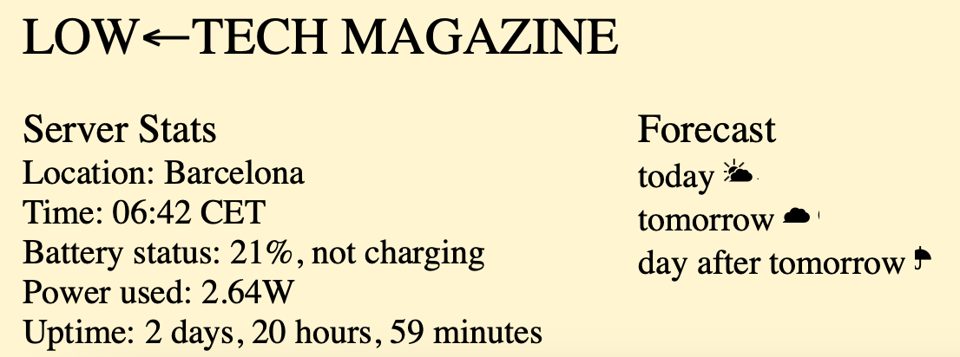
loved this post from someone who was struggling to understand scientific concepts while studying and so wrote a fanfic in which characters discussed them. Unlike generative AI, writing is thinking.
finally, in my lego city
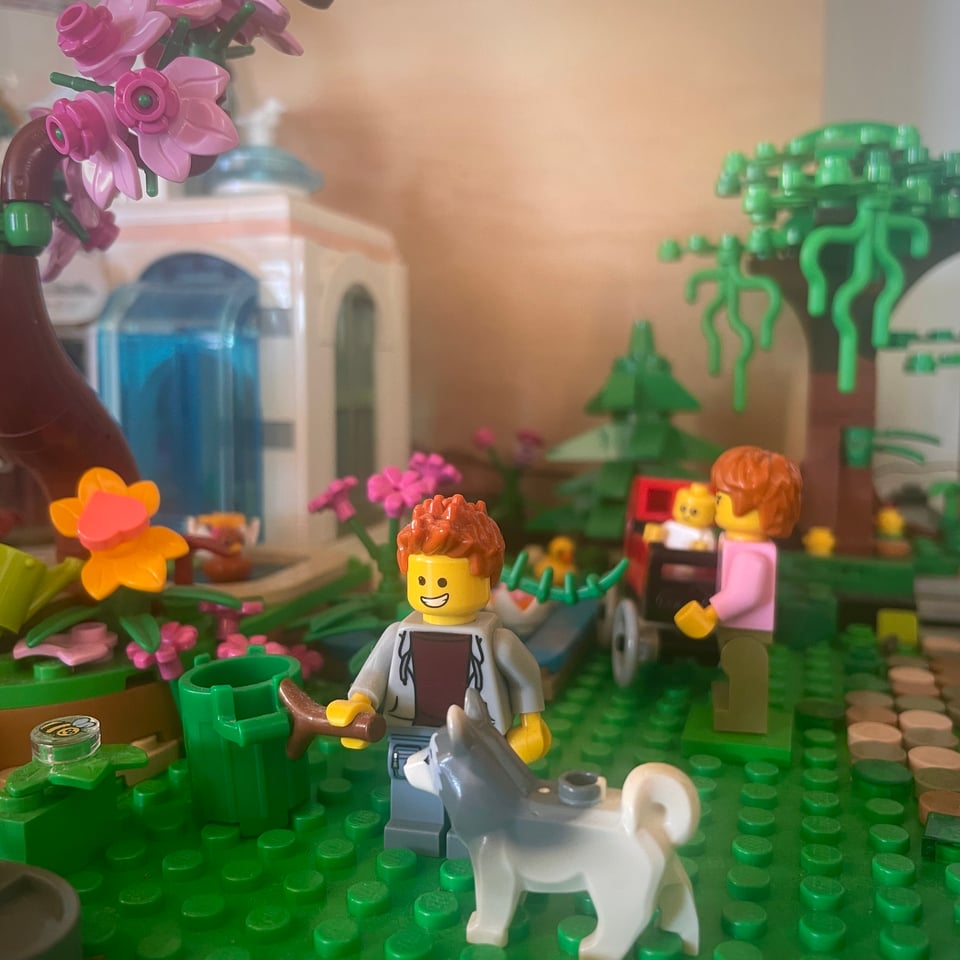
You just read issue #11 of what you love matters. You can also browse the full archives of this newsletter.

Add a comment: